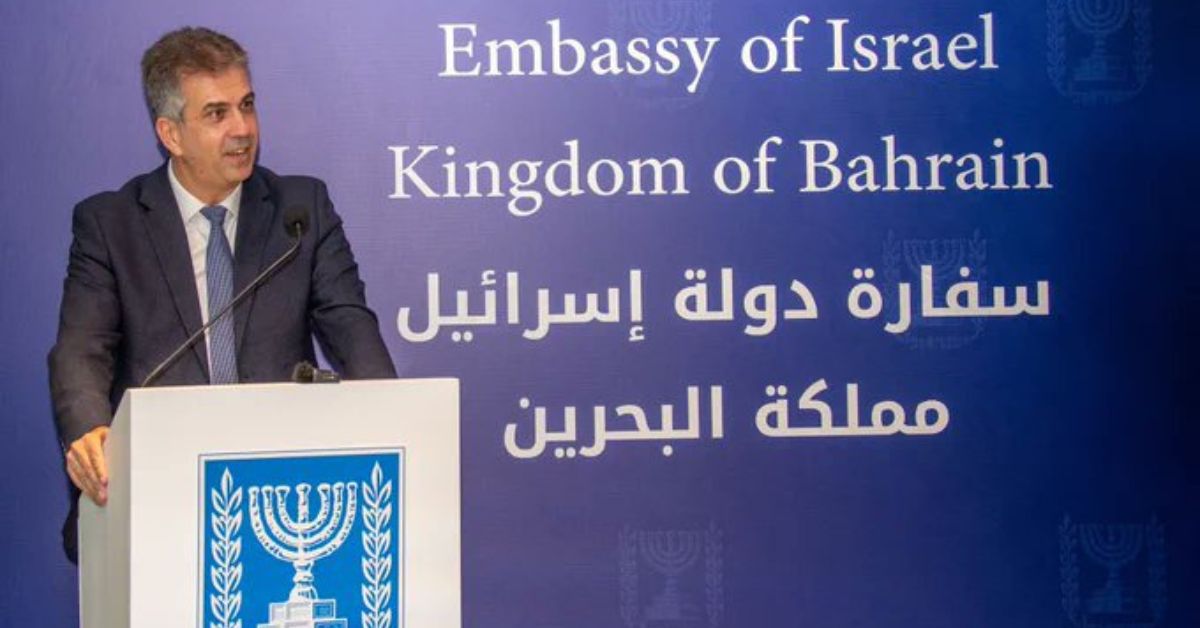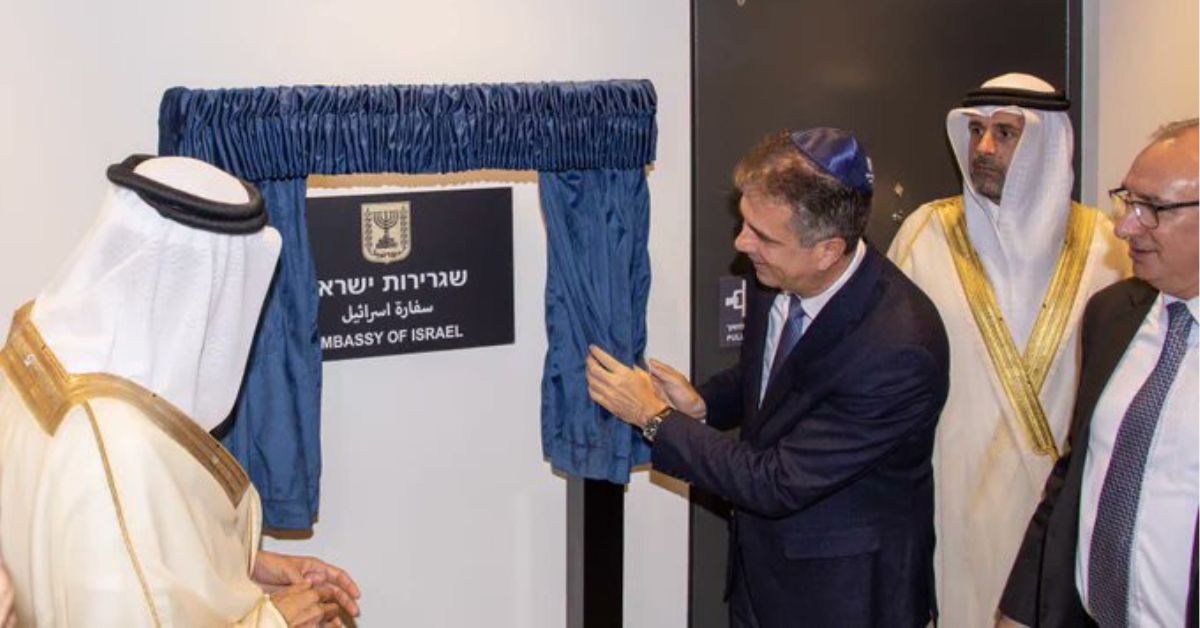BEIRUT — Six Arab countries out of a total of 22 maintain officially declared relations with the state of Israel. These countries are Egypt, Jordan, the United Arab Emirates, Bahrain, Morocco, and Sudan, and they include significant trade agreements that, if annulled, could have a substantial negative impact on Tel Aviv.
Bahrain’s announcement on November 2, 2023, of the expulsion of the Israeli ambassador from the country, the recall of the Bahraini ambassador from Israel, and the suspension of economic relations with Tel Aviv portends an economic war that could exacerbate Israeli losses if other countries follow suit.
Israeli natural gas
The most notable agreements between Egypt and Israel involve Cairo’s importation of Israeli gas. Imports began in 2020 with a $15 billion deal between Noble Energy, which Chevron acquired in 2020, Delek Drilling, and the Egyptian company Dolphinus Holdings.
Also Read Exclusive reports on Gaza-related developments
The Israeli Ministry of Energy announced on October 10 that “Chevron has stopped exporting natural gas through the Eastern Mediterranean Gas (EMG) sea pipeline between Israel and Egypt and is now exporting gas through an alternative pipeline via Jordan.”
At a glance • Egypt imports Israeli gas in a $15 billion deal. • Jordan imports Israeli gas in a $10 billion deal, as well as water valued at $5.5 million annually. • The UAE and Israel have a free trade agreement, with trade between the two countries exceeding $2.5 billion. • In 2022, the trade volume between Israel and Bahrain was about $20 million. • The value of trade between Israel and Morocco is estimated at around $500 million. • In 2022, the Arab countries that normalized relations with Israel accounted for approximately 25 percent of total Israeli arms exports.
According to Reuters, the volume of gas exported from Israel’s massive Leviathan field to Egypt has decreased, with priority given to supplies for the domestic market. However, it remains close to the agreed-upon quota.
Additionally, Chevron has halted operations at the Tamar gas extraction platform following Israel’s instructions in the wake of the war.
Jordan and Israel
The most crucial economic relations between Israel and Jordan are centered on gas and water agreements.
Jordan signed an agreement with Israel to purchase natural gas in 2016. Under this agreement, an American-Israeli alliance will supply Jordan with gas from the Leviathan field in the Mediterranean for 15 years. Jordan received its first supply of Israeli gas in January 2020.
Jordan purchases 300 million British thermal units of natural gas per day, which accounts for approximately 80 percent of the country’s natural gas needs for generating electricity, at a cost of $10 billion.
According to the 1994 peace treaty signed between Amman and Tel Aviv, Israel supplies Jordan with up to 55 million cubic meters of water from Lake Tiberias each year. This water is transported to Amman via the King Abdullah Canal at a cost of one cent per cubic meter (dollar = 100 cents).
In 2010, the two countries agreed to add an additional 10 million cubic meters at 40 cents per cubic meter, which is also the agreed-upon price for any extra supplies. This brings the total value of Israeli water exports to Jordan to more than $5.5 million annually.
Trade agreements
The UAE and Israel agreed to sign a free trade agreement in March 2023 to lower or eliminate customs tariffs on goods traded between the two countries.
Abu Dhabi and Tel Aviv first reached an agreement in May 2021, promising to increase bilateral trade after normalizing relations in 2020 through a US-brokered agreement.
The value of trade exchanges between the two parties exceeded $2.5 billion in 2022, excluding information products and services. This places the Gulf country as the 16th largest trade partner of Israel.
Israel hopes to sign a free trade agreement with Bahrain, which, along with the UAE, signed a deal to normalize relations in 2020. During his first visit to Manama in September, the Israeli Foreign Minister expressed his anticipation of establishing a free trade zone between Israel and Bahrain.
In 2022, the trade volume between Israel and Bahrain was only about $20 million.
In the case of Israel and Morocco, trade exchange increased significantly in 2022, now estimated at $500 million annually.
According to the Israeli Ministry of Regional Cooperation, the number of Israeli tourists visiting Morocco reached 200,000 by 2022.

Moreover, the value of trade agreements between Morocco and Israel in May 2022 reached $3.1 million, representing a 94 percent increase over the same period in 2021.
Significant market
The aforementioned data suggest that the countries maintaining official relations with Israel are considered a vital market for Tel Aviv.
A report published last September by the British website Middle East Eye indicated that these countries accounted for roughly 25 percent of the total record Israeli arms exports, which totaled $12.5 billion in 2022.
The report states, “Last year set a new record for the volume of Israeli military and security exports, increasing by 50 percent compared to the previous three years.”
The surge in sales volume is attributed to the normalization agreements that Israel signed with the UAE, Bahrain, Morocco, and Sudan.

